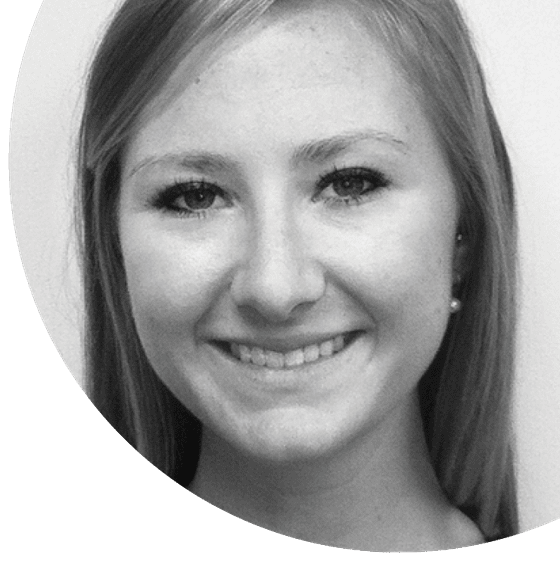DEPARTMENTS
PROFESSIONAL GROWTH

SAMANTHA CONNELL, MSPH, is an industrial hygienist for Syngenta
in Monthey, Switzerland. She can be reached at samantha.connell@syngenta.com.
While it may not be necessary to impress experienced professionals, there are certainly times you should show up prepared to be the expert.
KNOWLEDGE TO IMPRESS
While it may not be necessary to impress experienced professionals, there are certainly times you should show up prepared to be the expert. All IHs expect a high energy, fresh-minded early career professional to come to work ready to learn and deliver. If you have a presentation due, or if a superior IH asks you to complete a task, you’d better make sure you know your stuff.
Early career professionals in any field have an infinite amount of information to learn, and, if you’re one of them, there are many things you don’t know or haven’t experienced yet. Most experienced IHs will take mercy on you, but—as in any profession—you’re likely to encounter some who’ll make you feel unimpressive. But chances are good that it’s not their intention to bring you down. They may have forgotten for a moment that they have many years of experience compared to your short time in the field.
It’s happened to me: at my first internship, I’d taken only one 15-week IH class in my life. I didn’t know how to choose which type of filter I needed. A highly experienced IH at my company told me, “Of course you should know this already!” and began to list the pros and cons of every filter imaginable.
Since then I’ve learned that instead of thinking “I’ll never get it” or “I’ll never be a good IH,” it’s better to walk away knowing that I’ll only be a stronger EHS professional for studying up.
MEETING EXPECTATIONS
High expectations are a good thing: they mean that someone believes in you. You are capable of doing what they think you can do, so do it. Trying to figure out a task on your own is always better than saying “I can’t” or “I don’t know how to do that.” If you find yourself intimidated by a task and would prefer not to ask for help immediately, a good response is, “Let me refresh myself on the subject and see what I can find.” And remember, keeping an open line of communication with someone who has previously been in your position can help you adjust to new situations.
When expectations are high, it’s easy to forget the “building blocks” that form the base of your skill set. I recently asked for some advice on an interview, and my advisor from undergrad reminded me to go back to the basics. Sure, some people will hire you for your thesis work in a particular field, but IH fundamentals are what carry you through your career, allowing you to solve problems along the way. My new principle rule is that if I can look it up easily, it isn’t worth memorizing; my employer probably wouldn’t expect me to be able to recite that information on the fly.
FINDING YOUR ENTHUSIASM
You can train someone to become an IH, but it’s up to each person to find passion in their work. Show your mentors that you’re enthusiastic about the profession and want to learn from them. Ask questions: your superiors will respect you for seeking their guidance when you’re in a pinch. Share your opinions and ideas with other IHs and listen to their responses. Experienced IHs want to see the new generation succeed: get to know them and let them help you find your way.
The Newcomer’s Perspective
Building Relationships with Experienced Professionals
BY SAMANTHA CONNELL
Today’s students and early career professionals are expected to be proactive: get out there, network, and build relationships with mentors and other more experienced professionals. Between the technology at our fingertips and an increasing number of social events, particularly at IH and EHS conferences, we have more opportunities than ever to meet our heroes, heroines, and future mentors face-to-face. But for some, building professional relationships isn’t easy. In networking situations, young or inexperienced IHs may wonder how to impress more tenured professionals. What do they expect of their less experienced counterparts?
It’s easy to worry, but there’s no need to be afraid. IH personalities come in all shapes and sizes. As you build your network of professionals and try to get to know CIHs who can help guide you in your career, it’s okay to have reservations about being too bold or forthcoming. But don’t be intimidated. Your mentors and the experienced professionals you’ll meet were all in your shoes at some point, and I guarantee that they’d all encourage you to speak up and engage with them.
TAKING THE PLUNGE
Kicking off a conversation with someone new can be a challenge at networking events. If you’re too nervous to talk about yourself or feel uncomfortable because your experience isn’t comparable, begin by asking the CIH you’ve just met how they ended up where they are today. Before you know it, twenty minutes have passed and you have a new acquaintance to chat with when you don’t know anyone at the reception later in the day. Small talk is another good place to start. Getting to know someone on a more personal level can help you feel more comfortable before jumping into “IH talk” later. What are their hobbies? Where did they go to school? How many times have they been to AIHce? If you’re still too anxious to take the plunge and introduce yourself, ask to be placed with a mentor through the AIHA Mentoring Program.
Less nerve-racking options for networking include participating in sessions and social activities at AIHce that are specifically geared toward young and early career professionals. These events are often attended by IH luminaries who are excited to speak with the new generation of IHs. One purpose of these events is to facilitate networking, so starting conversations with esteemed strangers about their experiences is welcomed. Just be sure to practice introducing yourself and shaking hands while holding a plate and a drink.
If conferences or networking events are too uncomfortable at your current level of experience, volunteering for conference planning or officer positions in committees or volunteer groups can be a good way to meet CIHs in a context that’s a bit removed from the strictly technical side of IH. Working in these types of groups allows you to get to know people on a different personal level. It’s also an opportunity to put your communication, logistics, and planning skills to good use while learning from more experienced IHs in a less intimidating setting.
Casting your networking net wider to include experienced professionals in other fields can be helpful, since you’ll likely work with project and finance managers, engineers, and others. Their knowledge can be instrumental in your planning and understanding of projects. Some companies have never had an IH or have recently developed a fresh EHS team. In these cases, engineers are often the ones who have followed the health and safety culture of the company and understand the potential risks. They sometimes know stories about IHs who previously worked for the company, which can help you avoid reinventing the wheel. And management personnel can assist you in moving up in your career.

thesynergist | TOC | NEWSWATCH | DEPARTMENTS | COMMUNITY

